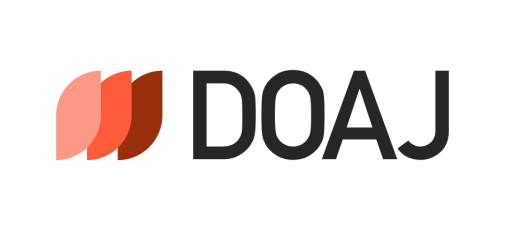Psychoeducational Groups Based on Dasa Pitutur from Sunan Kalijaga: An Indigenous Counseling to Enhance Other Group Orientation
Abstract
Abstract: Some Western counseling approaches are not applicable in local cultures. Consequently, counselors have to accommodate the local culture to improve the efficacy of their services. This research aims to formulate indigenous counseling based on the Javanese culture of Dasa Pitutur from Sunan Kalijaga. Using that culture, the counselors are expected to improve the participants’ cultural skills and respect for other cultures. It used the hermeneutic method with discourse analysis to interpret the messages’ structure and pragmatic. The analysis result signifies that the Dasa Pitutur values are relevant with the other group orientation. The primary message taught in Dasa Pitutur is encouraging humans to comprehend their life journey and position to willingly and voluntarily accept their obligations and nature. Linear to their position as a social creature, they have to be aware of the essential values from their relationship, dependency, and appreciation toward other humans. This study can be an enrichment material of cultural values-based guidance and counseling science.
Abstrak: Layanan bimbingan dan konseling yang dipopulerkan dari Barat tidak semua sesuai dengan nilai-nilai lokal setempat. Oleh karena itu, konselor perlu mengakomodir nilai-nilai budaya setempat agar dapat menunjang keefektifan layanan yang diberikan. Tujuan penulisan ini adalah untuk merumuskan konsep konseling indigenous berdasarkan kearifan lokal suku Jawa yang bersumber dari Dasa Pitutur karya Sunan Kalijaga sebagai upaya untuk meningkatkan keterampilan budaya individu untuk respek terhadap kelompok lain. Kajian ini menggunakan metode riset hermeneutika dengan varian analisis wacana untuk menafsirkan struktur pesan dan aneka fungsi (pragmatik) bahasa yang terkandung dalam teks Dasa Pitutur. Hasil pengkajian ini menunjukkan bahwa nilai-nilai Dasa Pitutur relevan dengan orientasi terhadap kelompok lain. Nilai utama yang diajarkan dari Dasa Pitutur adalah mengajak manusia memahami perjalanan hidup dan posisi manusia untuk dapat menerima tugas atau kodrat dengan suka rela atau mengemban tugas dengan hati yang lapang. Selaras dengan prinsip manusia sebagai makhluk sosial yang menekankan hubungan antara satu individu dengan individu lain, dimana setiap manusia hidup bersama orang lain dan saling membutuhkan serta menghargai satu sama lain. Kajian ini berkontribusi sebagai bahan pengayaan teori wawasan dalam bidang ilmu bimbingan dan konseling yang berbasis nilai-nilai budaya.
Keywords
Full Text:
PDFReferences
Ahmedani, B. K. (2011). Mental health stigma: society, individuals, and the profession. Journal of Social Work Values and Ethics, 8(2), 1–4.
Amin, Z. N., Loekmono, J. T. L., Sofyan, A., & Mulyawati, V. (2020). Kontribusi identitas etnis dan identitas akademik terhadap subjective well-being mahasiswa. Biblio Couns: Jurnal Kajian Konseling dan Pendidikan, 3(2), 67–73.
Amin, Z., Wibowo, M., Loekmono, L., Hariyadi, S., & Isrofin, B. (2017). Ethnic identity and other-group orientation on Javanese and Chinese students. In International Conference on Teacher Training and Education 2017 (ICTTE 2017) (pp. 827–832). Atlantis Press.
Ardila, Y., Sutoyo, A., & Mulawarman, M. (2019). Keefektifan kelompok psikoedukasi dengan teknik modeling untuk meningkatkan keterampilan sosial siswa. JURNAL EDUKASI: Jurnal Bimbingan Konseling, 5(1), 34–49.
Berg, R. C., Landreth, G. L., & Fall, K. A. (2018). Group counseling: concepts and procedures (6th ed.). New York: Routledge.
Brown, R. T., Kaslow, N. J., Doepke, K., Buchanan, I., Eckman, J., Baldwin, K., & Goonan, B. (1993). Psychosocial and family functioning in children with sickle cell syndrome and their mothers. Journal of the American Academy of Child & Adolescent Psychiatry, 32(3), 545–553.
Corey, G. (2011). Theory and practice of group counseling. Nelson Education.
Corey, G. (2012). Case approach to counseling and psychotherapy. Nelson Education.
Dahir, C. A. (2009). School counseling in the 21st century: Where lies the future. Journal of Counseling & Development, 87(1), 3–5.
Dudley, J. R. (2000). Confronting stigma within the services system. Social Work, 45(5), 449.
Gladding, S. T. (2016). Groups: A counseling specialty. Pearson.
Gloria, A. M., & Hird, J. S. (1999). Influences of ethnic and nonethnic variables on the career decision‐making self‐efficacy of college students. The Career Development Quarterly, 48(2), 157–174.
Hariko, R., & Ifdil, I. (2017). Analisis kritik terhadap model KIPAS; Konseling intensif progresif adaptif struktur. Jurnal Konseling dan Pendidikan, 5(2), 109–117.
Henderson, D. A., & Thompson, C. L. (2016). Counseling children. Nelson Education.
Homan, D. K. (2013). Berpikir dan Berperilaku dengan Rasa. Humaniora, 4(1), 203–211.
Kaelany, H. D. (2000). Islam dan aspek-aspek kemasyarakatan. Jakarta: Bumi Aksara.
Kamal, M. (2013). Pendidikan multikultural bagi masyarakat Indonesia yang majemuk. Al-Ta Lim Journal, 20(3), 451–458.
Kim, U., Yang, K.-S., & Hwang, K.-K. (2010). Indigenous and cultural psychology: Memahami orang dalam konteksnya. Yogyakarta: Pustaka Pelajar.
Long, Y., Zhu, S., Quan, F., Yang, Y., & Zheng, Y. (2020). The impact of ethnic affirmation and belonging on other-group orientation: The mediating role of personality traits and values in different ethnic groups. Personality and Individual Differences, 152, 109574.
Matsumoto, D., & Juang, L. (2016). Culture and psychology. Nelson Education.
Mitchell, M. H., & Gibson, R. L. (2011). Bimbingan dan konseling. Yogyakarta: Pustaka Pelajar.
Myers, D. G., & Twenge, J. M. (2016). Social psychology. New York: McGraw-Hill, Inc.
Phinney, J. S. (1992). The multigroup ethnic identity measure: A new scale for use with diverse groups. Journal of Adolescent Research, 7(2), 156–176.
Purbasafir, T. F., Fasikha, S. S., & Saraswati, P. (2018). Psikoedukasi untuk meningkatkan parenting self-efficacy pada ibu anak penyandang autisme. Jurnal Ilmiah Psikologi Terapan, 6(2), 232–244. https://doi.org/10.22219/jipt.v6i2.7143
Putra, A. S., & Soetikno, N. (2018). Pengaruh intervensi psikoedukasi untuk meningkatkan achievement goal pada kelompok siswi underachiever. Jurnal Muara Ilmu Sosial, Humaniora, dan Seni, 2(1), 254–261.
Sakdullah, M. (2014). Kidung rumeksa ing wengi karya Sunan Kalijaga dalam kajian teologis. Jurnal THEOLOGIA, 25(2), 231–250.
Sastrapratedja, M. (2012). Hermeneutika dan etika naratif menurut Paul Ricoeur. Kanz Philosophia, 2(2), 247–263.
Setiani, T. P., & Haryanto, H. C. (2019). Efektivitas psikoedukasi terhadap kemampuan adaptasi sosial pada mahasiswa baru. Psikoislamika: Jurnal Psikologi dan Psikologi Islam, 16(1), 1–8.
Sobur, A. (2002). Analisis teks media: Suatu pengantar untuk analisis wacana, analisis semiotik dan analisis framing. Remaja Rosdakarya.
Strauss, A., & Corbin, J. (2013). Dasar-dasar penelitian kualitatif. Yogyakarta: Pustaka Pelajar.
Stuber, J., Meyer, I., & Link, B. (2008). Stigma, prejudice, discrimination and health. Social Science & Medicine, 67(3), 351–357. https://doi.org/10.1016/j.socscimed.2008.03.023
Sue, D. W., & Sue, D. (2008). Counseling the culturally diverse: Theory and practice. John Wiley & Sons Inc.
Sugiharto, D. Y. P., Hariyadi, S., Amin, Z. N., Mulawarman, M., Muslikah, M., & Nugraheni, E. P. (2019). Pengembangan kompetensi konselor melalui pelatihan konseling motivational interviewing (MI) berbasis local wisdom budaya jawa. CARADDE: Jurnal Pengabdian Kepada Masyarakat, 1(2), 111–115.
Sumari, M., & Jalal, F. H. (2008). Cultural issues in counseling: An international perspective. Counselling, Psychotherapy, and Health, 4(1), 24–34.
Torino, G. C., Rivera, D. P., Capodilupo, C. M., Nadal, K. L., & Sue, D. W. (2018). Microaggression theory: Influence and implications. John Wiley & Sons.
Walsh, J. F. (2010). Psychoeducation in mental health. Lyceum Books.
World Economic Forum. (2016). The future of jobs: Employment, skills and workforce strategy for the fourth industrial revolution. Global Challenge Insight Report.
DOI: http://dx.doi.org/10.17977/um001v6i12021p034
Refbacks
- There are currently no refbacks.
Copyright (c) 2021 Mulawarman Mulawarman, Zakki Nurul Amin, Muslikah Muslikah, Sigit Hariyadi, Kusnarto Kurniawan

This work is licensed under a Creative Commons Attribution-ShareAlike 4.0 International License.
Jurnal Kajian Bimbingan dan Konseling
ISSN 2503-3417 (online), ISSN 2548-4311 (print)
Email: jkbk.fip@um.ac.id
Find Jurnal Kajian Bimbingan dan Konseling on:
 This work is licensed under a Creative Commons Attribution-ShareAlike 4.0 International License |  |
View Visitor Stats








